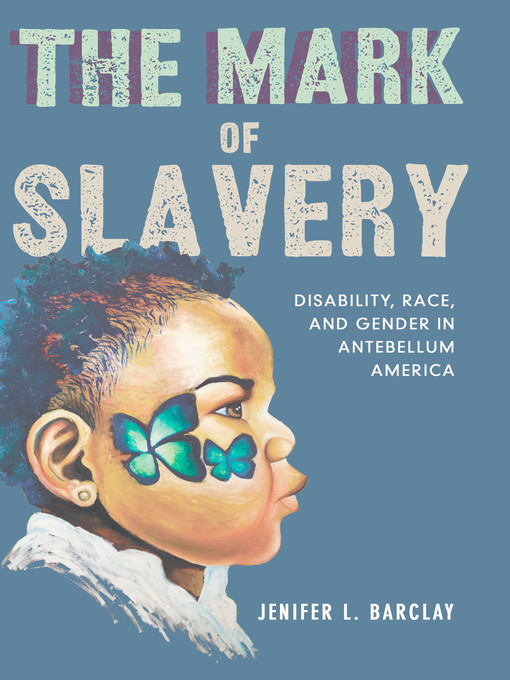Time and again, antebellum Americans justified slavery and white supremacy by linking blackness to disability, defectiveness, and dependency. Jenifer L. Barclay examines the ubiquitous narratives that depicted black people with disabilities as pitiable, monstrous, or comical, narratives used not only to defend slavery but argue against it. As she shows, this relationship between ableism and racism impacted racial identities during the antebellum period and played an overlooked role in shaping American history afterward. Barclay also illuminates the everyday lives of the ten percent of enslaved people who lived with disabilities. Devalued by slaveholders as unsound and therefore worthless, these individuals nonetheless carved out an unusual autonomy. Their roles as caregivers, healers, and keepers of memory made them esteemed within their own communities and celebrated figures in song and folklore.
Prescient in its analysis and rich in detail, The Mark of Slavery is a powerful addition to the intertwined histories of disability, slavery, and race.
| Cover Title Copyright Contents List of Illustrations Acknowledgments Introduction 1. Disability, Embodiment, and Slavery in the Old South 2. Reimagined Communities: Disability and the Making of Slave Families, Communities, and Culture 3. A Dose of Law: The Dialogics of Race and Disability in Southern Slave Law and Medicine 4. "Cannibals All!" The Politics of Slavery, Ableism, and White Supremacy 5. One Hell of a Metaphor: Disability and Race on the Antebellum Stage Conclusion Notes Bibliography Index Back cover |"This original work adds an important new voice to conversations about slavery, disability, and medical history. Exceptional analysis of an understudied topic" —Library Journal (starred review)"Addressing an often-overlooked aspect of the experiences of enslaved people, Barclay intricately examines the connection between racism, disabilities and slavery, as well as the legacy it left behind, in this important and well-researched volume." —Ms. Magazine
"The Mark of Slavery is not simply a study of disability discourse. Rather, the book examines disability as both a discourse about race and slavery and as a lived experience affecting the lives of thousands of enslaved people." —Black Perspectives
|Jenifer L. Barclay is an assistant professor of history at the University at Buffalo.
